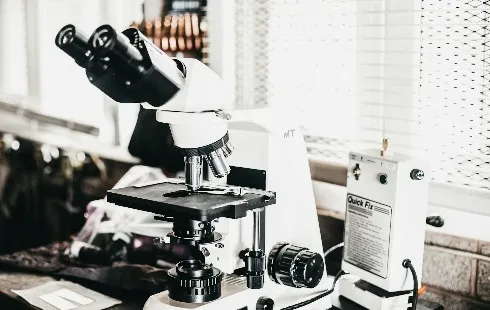
Gonadorelin Peptide: A Gateway to Understanding Endocrine Dynamics
Section: Science
A groundbreaking AI-driven tool developed by researchers at Western Sydney University has the potential to revolutionize the diagnosis and treatment of type 1 diabetes (T1D). This innovative approach utilizes microRNAs--small RNA molecules derived from blood samples--to assess the risk of developing T1D and predict patient responses to various treatments.
The tool, featuring a Dynamic Risk Score (DRS4C), is designed to classify individuals based on their risk of T1D by accurately analyzing molecular data from a diverse group of 5,983 participants across multiple countries, including Australia, Canada, Denmark, Hong Kong, India, New Zealand, and the United States. The model was further validated with an additional 662 participants.
One of the key advantages of this AI-based risk score is its ability to predict early treatment responses. Within just one hour after administering therapies such as islet transplantation and drug therapy (imatinib), the tool can indicate which patients are likely to remain insulin-free. Additionally, it has the unique capability of differentiating T1D from type 2 diabetes (T2D), which is crucial for accurate diagnosis.
Professor Anand Hardikar, the lead investigator of the study, pointed out that traditional testing methods for T1D have remained stagnant for decades. These methods often rely on symptoms and biomarkers that only manifest at the onset of the disease, leading to missed early warning signs. With more than 1.7 million Australians living with diabetes, including over 135,000 diagnosed with T1D, timely and accurate risk predictions are increasingly important.
As therapies that can delay the progression of T1D are becoming more recognized and available, the ability to accurately predict disease development allows healthcare professionals to take early action. This is particularly critical for cases of early-onset T1D, which can lead to a significantly reduced life expectancy.
The research team has also addressed concerns regarding genetic testing for T1D. Many individuals and families are hesitant to undergo genetic risk assessments due to feelings of guilt associated with family history. However, it is noteworthy that around 80% of T1D cases arise in individuals without any family history of the condition, emphasizing the important role of environmental factors.
Dr. Mugdha Joglekar, another lead researcher involved in the project, highlighted the distinction between static genetic markers and the dynamic risk scores provided by their tool. While genetic markers reveal lifelong risk, the dynamic risk scores offer a real-time assessment of risk, enabling more timely and adaptive monitoring without the associated stigma.
In addition to its applications in T1D, the modeling approach utilized in this research could extend to other areas, particularly in differentiating between T1D and T2D. This is a vital area of exploration, as many adults with T1D are incorrectly diagnosed with T2D, leading to suboptimal treatment strategies.
Overall, this AI-powered tool represents a significant advancement in the field of diabetes research and management, offering a more nuanced understanding of risk and treatment response that could greatly benefit patients and healthcare providers alike.

Section: Science

Section: Health

Section: Arts

Section: Health

Section: Science

Section: News

Section: News

Section: Health Insurance

Section: Health

Section: News
Health Insurance in Germany is compulsory and sometimes complicated, not to mention expensive. As an expat, you are required to navigate this landscape within weeks of arriving, so check our FAQ on PKV. For our guide on resources and access to agents who can give you a competitive quote, try our PKV Cost comparison tool.
Germany is famous for its medical expertise and extensive number of hospitals and clinics. See this comprehensive directory of hospitals and clinics across the country, complete with links to their websites, addresses, contact info, and specializations/services.
What do you get when you blend the tradition of American stand-up comedy with themes that are anything but funny? Pair that with a captivating performer and author like Claus von Wagner, and you're guaranteed a fantastic evening. Projekt Equilibrium is his latest program, which explores the quest...



No comments yet. Be the first to comment!